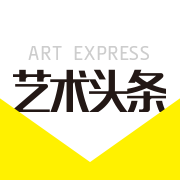
温茶里2024压轴大展《面对日常》
2024-12-11 16:34:02 未知

艺术家:张伟
策展人:龙邃洋
展览时间:2024年12月12日至2025年1月15日
展览地点:温茶里
开幕式:12月12日下午1-3时
地址: 205 16th St, West Vancouver, BC
文/杨小彦
我一直推崇张伟的绘画,原因是,他的画有一种近乎自发的日常性,像每日的呼吸,每日的散步,每日的观看,不做作,不设计,不预先构思,不发功做激情准备,不深呼吸做哲学冥想,不苦思做主题规划,几乎见什么画什么,而且,一画,其所见突然会从日常中升格为真实的存在。从这一点看,张伟的绘画实践倒非常符合所谓现象学的描述:悬置一切审美概念,只面对纯粹的现象。尽管,他一点也不懂、更不会有兴趣谈论这个深奥的现象学。其实,我也不太懂这个现象学,只是现在它好像成了时髦词,不这样说,似乎等于没有思想。

张伟的问题是,他没有什么思想,更遑论深刻的思想。当然,我也没有,我只有常识。今天,在我们的语境中,没有思想,这很麻烦,等于没有,比如,对于画家来说,没有艺术才能;对于我这样以艺术研究为业的人来,没有水平。统观今日画界,我斗胆说一句:我们都被所谓哲学害了!
有一个研究现象学的学者,听说我所从事的工作,认真与我讨论著名哲学家梅洛·庞蒂论述同样著名的画家塞尚笔下的苹果,如何通过此例揭示现象学的真蒂,否则,我们就不能理解,为什么塞尚会把苹果画变形了。我说,没有那么深奥,塞尚就是想把苹果画变形,因为构图需要,而不是苹果需要!塞尚的才能在于,他明白,构图比苹果重要!而在他那个时代,很多画家一直认为,苹果更重要!所以,我强烈建议,凡是所谓哲学家的画评,基本不要去看,因为近于胡写。

某个时刻,张伟与我们大家一样,只能困坐家中,于是他就画眼前的红酒瓶塞,好几个堆在一起;画放糖果的小碟子,一只或两只。只要有可能,他就想外出,因为要去写生。张伟是教画的老师,他最乐意的事就是带着学生下乡,画农田,画房子,画山丘,画电线杆和栅栏,或者,画学生。画人时,他从不美化,只抓住基本特征,情绪出来为限,从不多画。画景时,只凭感受,有概括,有省略。尤其是画水彩,背景是空白的,不着一笔一色;远、中、近区隔也颇为分明,用色单纯,甚至近乎单色。
我对张伟说,这才叫画画,直率而感性,画面趣味来自内心体验,既包含长久的经验,也有现场即时的刺激。我从张伟的绘画实践中还明白了另一个道理,那就是,我们多被所谓的“风格”害了,以为绘画非有风格不可,非形成符号不可,以至于把率性变成了设计。坦率说,设计就是设计,不是绘画,尤其不是那种感受第一、描绘畅快的绘画,不是那种强调绘画性的绘画。没有绘画性的绘画,难道能够叫绘画吗?凭多年经验,在我所认识的诸多从事艺术这一行业的人中,有很多才能卓著者,但最终他们都没有能画出来,原因很简单,就是,他们一直在经营所谓的风格!他们的作品没有真实可信的绘画性。没有绘画性等于没有画味。

张伟的画有画味,因为他从不经营。这一点太重要了,是保证他的作品有画味的前提。我曾经对张伟说,最耐看的文字是日记,而不是散文。因为日记面对日常,面对每时每刻的感受,面对生活,而散文需要搬弄文采,寻章构句,点火煽情。而作画犹如写日记,是一种视觉的日记,凡物皆可入画,凡物皆可描绘,凡物皆有兴味,而不独慷慨激昂。张伟的迷人之处正在这里,他始终面对日常,并持之以恒,不为外物所动。

张伟,1984年毕业于广州美术学院附中,1988年毕业于广州美术学院油画系,2000年毕业于中央美术学院油画系研究生同等学历班,现为广州美术学院教授、广州美术学院附中副校长、中国美术家协会会员、广州市美术家协会常务理事兼油画艺委会副主任,作品多次入选全国美展及获省级展览并获一、二、三等及优秀奖等各类奖项,多次应邀在国内外举办个展及联展,作品被中国国内多个省市级美术馆等公共艺术机构收藏。

Exhibition Title: Facing the Everyday
Artist: Zhang Wei
Curated by Steven Dragonn
Duration: Dec 12, 2024- Jan 15, 2025
Venue: Van Cha Teahouse
Opening Reception: Dec 12, Thu, 1-3pm
Address: 205 16th St, West Vancouver, BC
Facing the Everyday—My Thoughts on Zhang Wei’s Recent Works
By Yang Xiaoyan
I have always admired Zhang Wei's paintings because they possess a near-spontaneous sense of everydayness, like daily breathing, daily walks, or daily observations. They are unpretentious, uncalculated, without preconceived notions or deliberate preparations. There is no deep breath for philosophical meditation, no strenuous effort to plan a theme. His approach is simple: he paints what he sees. And in the act of painting, what he observes often transcends the mundane, becoming a genuine existence. In this sense, Zhang Wei's artistic practice aligns remarkably well with the phenomenological description: suspending all aesthetic concepts and facing pure phenomena. However, he knows little, if anything, about phenomenology, nor would he be interested in discussing such a profound topic. Truth be told, I don’t understand phenomenology much either; it has just become a trendy term these days, and not mentioning it might suggest a lack of intellectual depth.
Zhang Wei’s issue is that he lacks philosophical ideas, let alone profound ones. Of course, neither do I—I only possess common sense. In today's context, not having “thoughts” can be problematic. For a painter, it’s equivalent to lacking artistic talent; for someone like me, who researches art, it signals a lack of expertise. Looking broadly at the art world today, I dare to say: we have all been misled by philosophy!
A scholar of phenomenology once earnestly discussed with me how Maurice Merleau-Ponty’s analysis of Paul Cézanne’s apples revealed the essence of phenomenology. Otherwise, they claimed, we would not understand why Cézanne painted apples that were distorted. I replied, "It’s not that deep. Cézanne simply wanted to distort the apples because it suited his composition, not because the apples required it!" Cézanne’s genius lay in understanding that composition mattered more than the apples. In his era, many painters still believed the apples were more important. That’s why I strongly advise against reading philosophical critiques of art; they are often sheer nonsense.
At one point, like the rest of us, Zhang Wei was confined to his home. During this time, he painted whatever was in front of him: corks from wine bottles piled together or small dishes holding candy, one or two at a time. Whenever possible, he sought to go outside for plein-air painting. Zhang Wei, a teacher of painting, finds his greatest joy in taking students to the countryside to paint fields, houses, hills, utility poles, fences, or even the students themselves. When painting people, he never idealizes them but captures their essential features and emotions without overworking the details. When painting landscapes, he relies on feeling, using abstraction and omission. Particularly in his watercolors, the backgrounds are left blank, with no added color or strokes. The distinction between foreground, middle ground, and background is clear, and his use of color is simple, bordering on monochromatic.
I told Zhang Wei, “This is what painting should be—direct and intuitive. The charm of the work comes from personal experience, a mix of enduring practice and immediate on-site stimuli.” From Zhang Wei’s artistic practice, I’ve learned another important lesson: we have been misled by the idea of "style." Many believe that painting must have a distinct style or form a recognizable signature, leading them to turn spontaneity into contrivance. To be frank, design is design, not painting—especially not the kind of painting that prioritizes sensation and uninhibited expression, the kind that emphasizes the essence of painting itself. Without the essence of painting, can it even be called painting? Based on years of experience, I’ve observed that many highly talented individuals in the art world fail to truly "paint." The reason is simple: they are too preoccupied with cultivating a “style.” Their works lack authentic and convincing painterliness. Without painterliness, there is no "flavor" of painting.
Zhang Wei’s paintings possess this "flavor" because he never contrives. This is crucial—it ensures the painterliness of his work. I once told Zhang Wei, "The most enduring text is a diary, not an essay. A diary reflects the everyday, the immediate feelings, and life itself, while essays often manipulate language, seek rhetorical flourishes, and provoke emotional highs. Painting is like keeping a visual diary. Anything can be painted, anything can be depicted, anything can hold interest. It doesn’t have to be grand or dramatic." This is where Zhang Wei’s charm lies: he consistently faces the everyday with perseverance and remains unshaken by external influences.
About Zhang Wei
Zhang Wei graduated from the Affiliated High School of the Guangzhou Academy of Fine Arts in 1984 and from the Oil Painting Department of the Guangzhou Academy of Fine Arts in 1988. In 2000, he completed a graduate-level equivalency program at the Central Academy of Fine Arts' Oil Painting Department. He is currently a professor at the Guangzhou Academy of Fine Arts, vice principal of its affiliated high school, a member of the China Artists Association, and an executive council member of the Guangzhou Artists Association, where he also serves as deputy director of the Oil Painting Committee. His works have been selected for numerous national exhibitions, receiving provincial awards including first, second, third prizes, and excellence awards. He has also held solo and group exhibitions domestically and internationally, with his works collected by various provincial and municipal art museums and public art institutions across China.
(责任编辑:胡文娇)
注:本站上发表的所有内容,均为原作者的观点,不代表雅昌艺术网的立场,也不代表雅昌艺术网的价值判断。
 张瀚文:以物质媒介具象化精神世界
张瀚文:以物质媒介具象化精神世界 吕晓:北京画院两个中心十年 跨学科带来齐白石研究新突破
吕晓:北京画院两个中心十年 跨学科带来齐白石研究新突破 OCAT上海馆:参与构建上海艺术生态的十年
OCAT上海馆:参与构建上海艺术生态的十年 春雨斋主人房茂梁:“好运气”的90后古玩经纪人
春雨斋主人房茂梁:“好运气”的90后古玩经纪人
全部评论 (0)